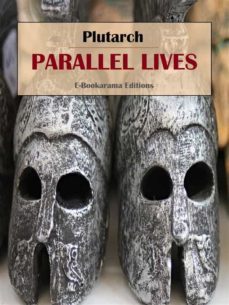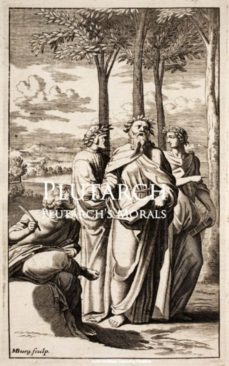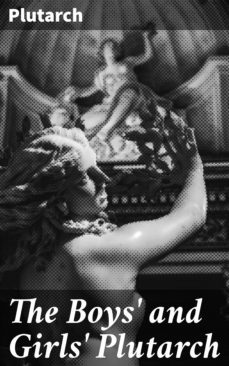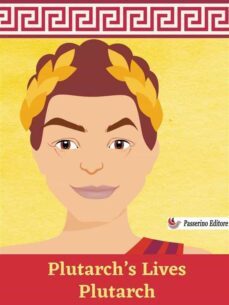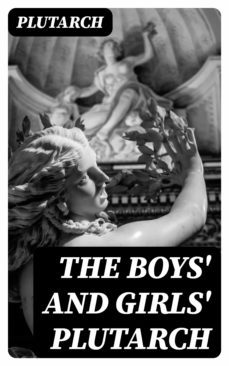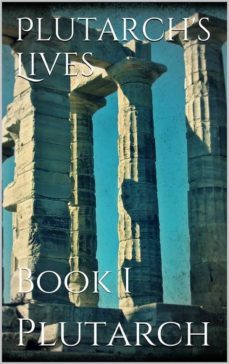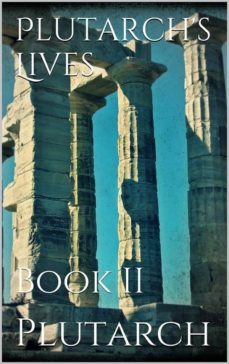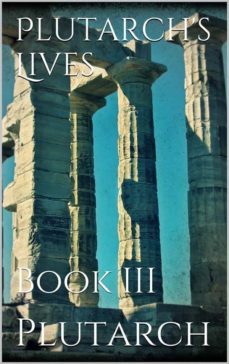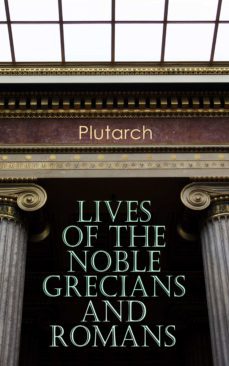Imprescindibles
Más vendidos Libros más leídos eBooks más leídos Todos los libros Todos los libros Autores destacados Series y sagas
Recomendados Libros recomendados Autores destacados Libros que inspiran Vidas con historia LGTBIQ+ English books
Ficción
Literatura Contemporánea Estudios literarios Clásicos Cuentos Poesía Teatro Libros de bolsillo Sagas literarias
Géneros literarios Novela romántica y erótica Novela negra Novela histórica Narrativa fantástica Novela de ciencia ficción Novela de terror Narrativa de humor Narrativa de viajes
No Ficción
Ciencias y tecnología Biología Ciencias Ciencias naturales Divulgación científica Informática Ingeniería Matemáticas Medicina Salud y dietas Formación Idiomas Estilo de vida Libros de Cocina Guías de viaje Narrativa de viajes Deportes Libros de Juegos Manualidades
Humanidades Autoayuda y espiritualidad Ciencias humanas Derecho Economía y Empresa Psicología y Pedagogía Filosofía Sociología Filología Biblioteconomía Estudios filológicos Estudios lingüísticos Estudios literarios Historia y crítica de la Literatura
Infantil
Juvenil
#Jóvenes lectores Narrativa juvenil Clásicos adaptados Libros Wattpad Libros Booktok Libros de influencers Libros de Youtubers Libros Spicy Juveniles Libros LGTBIQ+ Temas sociales Libros ciencia ficción Libros de acción y aventura Cómic y Manga Juvenil Cómic Juvenil Manga Shonen Manga Shojo Autores destacados Jennifer L. Armentrout Eloy Moreno Nerea Llanes Hannah Nicole Maehrer
Libros de fantasía Cozy Fantasy Dark academia Hadas y Fae Romantasy Royal Fantasy Urban Fantasy Vampiros y hombres lobo Otros Misterio y terror Cozy mistery Policiaca Spooky Terror Thriller y suspense Otros
Libros románticos y de amor Dark Romance Clean Romance Cowboy Romance Mafia y amor Romance dramatico Romcom Sport Romance Otros Clichés Enemies to Lovers Friends to Lovers Hermanastros Slow Burn Fake Dating Triángulo amoroso
Cómic y Manga
Novela gráfica Novela gráfica americana Novela gráfica europea Novela gráfica de otros países Personajes, series y sagas Series y sagas Star Wars Superhéroes Cómics DC Cómics Marvel Cómics otros superhéroes Cómics Valiant
Books in English
Books in English Fiction Non Fiction Comic Teen & Young Adult Main Authors Ken Follett Agatha Christie Stephen King Jane Austen Maggie O’Farrell On sale
Books in English for Young Adults Age 13+ Age 15+ Young Adult Authors Rebecca Yarros Sarah J. Maas Brandon Sanderson Ali Hazelwood Alice Oseman
Audiolibros
Literatura Contemporánea Narrativa fantástica Novela de ciencia ficción Novela de terror Novela histórica Novela negra Novela romántica y erótica Historia Historia universal
Humanidades Autoayuda y espiritualidad Ciencias humanas Economía y empresa Psicología y pedagogía Filosofía Infantil Audiolibros infantiles
Ciencia y tecnología Ciencias naturales Divulgación científica Medicina Salud y dietas Arte Cine Música Historia del arte
eBooks
Literatura Contemporánea Narrativa fantástica Novela de ciencia ficción Novela de terror Novela histórica Novela negra Novela romántica y erótica Juvenil Más de 13 años Más de 15 años Infantil eBooks infantiles
Humanidades Autoayuda y espiritualidad Ciencias humanas Economía y Empresa Psicología y Pedagogía Filosofía Historia Historia de España Historia Universal Arte Cine Música Historia del arte
Ciencia y tecnología Ciencias naturales Divulgación científica Medicina Salud y dietas Filología Estudios lingüísticos Estudios literarios Historia y crítica de la Literatura Estilo de vida Cocina Guías de viaje Ocio y deportes
PLUTARCH
Recibe novedades de PLUTARCH directamente en tu email
Filtros
Del 1 al 20 de 36
E-BOOKARAMA 9788834164648
Plutarchs "Parallel Lives" (AKA Lives of the Noble Greeks and Romans) is a collection of biographies about great men and leaders from Greece and Rome.The book is structured in pairs of biographies including Themistocles v. Camillus, Pyrrhus v. Marius, Alexander v. Caesar, and Phocion v. Cato the Younger. Plutarch compares the lives of leaders from both the Greeks and the Romans to show how similar they were. He hoped that the comparisons would lead to mutual respect between the two empires that were both influential at the time. As a result, most of the biographies are filled with moral teachings. "Parallel Lives" can still be used by anyone intending to run for public office today since the same ethical principles apply to modern leaders.
Ver más
eBook
PENGUIN 9780141036779
From an intimate and moving letter to his grieving wife on the death of their daughter, to elegant writings on morality, happiness and the avoidance of anger, Plutarchs powerful words of consolation and inspiration still offer timeless wisdom and guidance today.
Ver más
Tapa blanda
anboco 9783736414105
Plutarch, who was born at Chronea in Botia, probably about A.D. 50, and was a contemporary of Tacitus and Pliny, has written two works still extant, the well-known Lives, and the less-known Moralia. The Lives have often been translated, and have always been a popular work. Great indeed was their power at the period of the French Revolution. The Moralia, on the other hand, consisting of various Essays on various subjects (only twenty-six of which are directly ethical, though they have given their name to the Moralia), are declared by Mr. Paley "to be practically almost unknown to most persons in Britain, even to those who call themselves scholars."1 Habent etiam sua fata libelli.In older days the Moralia were more valued. Montaigne, who was a great lover of Plutarch, and who observes in one passage of his Essays that "Plutarch and Seneca were the only two books of solid learning he seriously settled himself to read," quotes as much from the Moralia as from the Lives. And in the seventeenth century I cannot but think the Moralia were largely read at our Universities, at least at the University of Cambridge. For, not to mention the wonderful way in which the famous Jeremy Taylor has taken the cream of "Conjugal Precepts" in his Sermon called "The Marriage Ring," or the large and copious use viiihe has made in his "Holy Living" of three other Essays in this volume, namely, those "On Curiosity,""On Restraining Anger," and "On Contentedness of Mind," proving conclusively what a storehouse he found the Moralia, we have evidence that that most delightful poet, Robert Herrick, read the Moralia, too, when at Cambridge, so that one cannot but think it was a work read in the University course generally in those days. For in a letter to his uncle written from Cambridge, asking for books or money for books, he makes the following remark: "How kind Arcisilaus the philosopher was unto Apelles the painter, Plutark in his Morals will tell you."...
Ver más
eBook
PENGUIN 9780140441024
Tapa blanda
Good Press 4057664654724
In "The Boys and Girls Plutarch," Plutarch curates a selection of engaging biographies from his well-known works, aiming to inspire and educate younger readers. The text adopts a straightforward literary style, blending historical facts with moral lessons, making it an accessible introduction to significant figures from antiquity. Plutarchs narrative intertwines anecdotes and character insights, which not only bring these historical personalities to life but also foster a deeper understanding of virtue, ambition, and ethics within the context of ancient Greek and Roman cultures. Plutarch, a Greek biographer and philosopher of the late first and early second centuries AD, sought to bridge cultural divides through his works, emphasizing the shared human experiences of both Greeks and Romans. His dedication to moral philosophy often manifested in numerous biographies, showcasing the lives of notable individuals like Alexander the Great and Julius Caesar. By distilling these influential figures virtues and failings, Plutarch aimed to instill a sense of moral character and civic responsibility in young minds. "The Boys and Girls Plutarch" is a compelling read for both educational institutions and individual curious minds. It serves not only as an introduction to important historical figures but also as a timeless guide to ethical living, making it essential reading for those interested in history, ethics, or the foundations of Western thought.In this enriched edition, we have carefully created added value for your reading experience:- A succinct Introduction situates the works timeless appeal and themes.- The Synopsis outlines the central plot, highlighting key developments without spoiling critical twists.- A detailed Historical Context immerses you in the eras events and influences that shaped the writing.- An Author Biography reveals milestones in the authors life, illuminating the personal insights behind the text.- A thorough Analysis dissects symbols, motifs, and character arcs to unearth underlying meanings.- Reflection questions prompt you to engage personally with the works messages, connecting them to modern life.- Handpicked Memorable Quotes shine a spotlight on moments of literary brilliance.- Interactive footnotes clarify unusual references, historical allusions, and archaic phrases for an effortless, more informed read.
Ver más
eBook
Proyecto Gutenberg cdlpg00014140
Tr.: Aubrey Stewart and George Long
Ver más
eBook
Good Press 4064066247003
Plutarchs "Roman Questions" is a seminal work that intricately weaves together philosophy, history, and moral inquiry, focusing on various aspects of Roman life and thought. Written in the celebrated style of the Greek biographer and philosopher, the text employs a series of probing questions and reflections intended to illuminate the ethical and cultural practices of ancient Rome. Plutarchs careful analysis traverses themes such as virtue, politics, and the complexities of human nature, providing a rich tapestry that contextualizes Roman customs within a broader philosophical framework, thereby engaging both the scholar and the general reader alike. Plutarch, born in 46 AD in Chaeronea, Greece, was profoundly influenced by the intellectual atmosphere of his time, steeped in both Greek and Roman traditions. His dual heritage enabled him to navigate and critique the cultures he examined, imbuing his work with a unique perspective that reflects the transitional nature of the Roman Empire. Enigmatic and astute, Plutarchs writings were driven by a profound desire to explore moral philosophy and the intricacies of human behavior, transcending the mere recording of historical events. "Roman Questions" is highly recommended for readers seeking to understand both the ethical implications of Roman society and Plutarchs philosophic insights. Engaging with this text is not merely an academic endeavor; it invites reflection on the moral dilemmas that persist in our contemporary societies. This discerning work is invaluable for students, historians, and anyone attracted to the enduring legacy of Roman thought.In this enriched edition, we have carefully created added value for your reading experience:- A succinct Introduction situates the works timeless appeal and themes.- The Synopsis outlines the central plot, highlighting key developments without spoiling critical twists.- A detailed Historical Context immerses you in the eras events and influences that shaped the writing.- An Author Biography reveals milestones in the authors life, illuminating the personal insights behind the text.- A thorough Analysis dissects symbols, motifs, and character arcs to unearth underlying meanings.- Reflection questions prompt you to engage personally with the works messages, connecting them to modern life.- Handpicked Memorable Quotes shine a spotlight on moments of literary brilliance.- Interactive footnotes clarify unusual references, historical allusions, and archaic phrases for an effortless, more informed read.
Ver más
eBook
Passerino 9791222075907
Plutarchs Lives is a collection of biographies of famous Greeks and Romans, written by the ancient Greek philosopher Plutarch. The biographies were originally published in the late 1st century AD and early 2nd century AD and have been influential in shaping Western views of classical history and politics.The book is comprised of 46 biographies, each comparing the lives of two historical figures who lived at approximately the same time. Plutarchs intention was to provide readers with examples of virtue and vice in order to help them live better lives. The biographies cover a range of topics, including politics, war, philosophy, and ethics.Some of the most famous biographies in the collection include those of Alexander the Great, Julius Caesar, and Cicero. Plutarchs approach to biography was innovative for his time, as he sought to understand the psychology and motivations of the people he wrote about, rather than just recounting their actions.Plutarchs Lives has been widely read and studied over the centuries and has influenced many writers, including Shakespeare. It remains a valuable source of historical information and insights into the lives and values of ancient Greeks and Romans.Plutarch (c. 46 - c. 120 AD) was an ancient Greek historian, biographer, and essayist. He was born in the town of Chaeronea in Boeotia, Greece, and spent much of his life in Athens, where he became a priest and an important figure in the intellectual and cultural life of the city.
Ver más
eBook
DigiCat 8596547122371
In "The Boys and Girls Plutarch," Plutarch presents a captivating collection of biographical sketches, distilling the essence of exemplary figures from classical antiquity for a youthful audience. Written in a clear, engaging narrative style, this compilation aims to inspire moral virtues through the lives of historical characters, emphasizing themes such as bravery, wisdom, and justice. Plutarchs work serves as an introduction to the values espoused by ancient Greek and Roman cultures, filtered through the lens of a moral educator, making it accessible and relevant for children and adolescents. The choice of anecdotes is particularly insightful, aiming to nurture virtues that resonate with young readers. Plutarch, a Greek philosopher and historian from the first century AD, was deeply influenced by his Stoic philosophy and the moral teachings of his predecessors. His overarching goal was to provide ethical instruction through historical narratives, reflecting his belief in the importance of character and moral virtue in the development of individuals. In crafting this particular volume for younger audiences, Plutarch sought to cultivate virtuous citizens by instilling admiration for heroic lives and ethical conduct. "The Boys and Girls Plutarch" is highly recommended for educators, parents, and young readers alike. Its accessible style and rich moral content make it an ideal introduction to classic literature, serving both as an engaging read and a valuable resource for character development. Encourage the young minds in your life to explore these tales of heroism and virtue, which have resonated through the ages.
Ver más
eBook
Simone Vannini 9786050422986
Among the extant Lives of Plutarch there are thirteen Lives of Romans which belong to the most eventful period of Roman history. They are the lives of the brothers Tiberius and Caius Sempronius Gracchus, of Caius Marius, Lucius Cornelius Sulla, Quintus Sertorius, Marcus Licinius Crassus, Cneius Pompeius Magnus, Marcus Porcius Cato the Younger, Marcus Tullius Cicero, Lucius Licinius Lucullus, Caius Julius Caesar, Marcus Junius Brutus, and Marcus Antonius. From the year of the death of Tiberius Gracchus, B.C. 133, to the death of Marcus Antonius, B.C. 30, a period of about one hundred years, the Roman State was convulsed by revolutions which grew out of the contest between the People and the Nobility, or rather, out of the contests between the leaders of these two bodies. This period is the subject of Appians History of the Civil Wars of the Romans, in Five Books. Appian begins with the Tribunate and legislation of Tiberius Gracchus, from which he proceeds to the Dictatorship of Sulla, and then to the quarrels between Pompeius and Caesar, and Caesars Dictatorship and assassination. He then proceeds to the history of the Triumvirate formed after Caesars death by his great nephew Caius Julius Caesar Octavianus, Marcus Antonius, and Lepidus, the quarrels of the Triumviri, the downfall of Lepidus, who was reduced to the condition of a private person, and the death of Sextus Pompeius, the last support of the party in whose cause his father, Cneius Pompeius, lost his life.
Ver más
eBook
Proyecto Gutenberg cdlpg00014033
Tr.: Aubrey Stewart and George Long / Contents: / Life of Plutarch / Life of Theseus / Life of Romulus / Comparison of Theseus and Romulus / Life of Lykurgus / Life of Numa / Comparison of Numa with Lykurgus / Life of Solon / Life of Poplicola / Comparison of Solon and Poplicola / Life of Themistokles / Life of Camillus / Life of Perikles / Life of Fabius Maximus / Comparison of Perikles and Fabius Maximius / Life of Alkibiades / Life of Caius Marcius Coriolanus / Comparison between Alkibiades and Coriolanus / Life of Timoleon / Life of Aemilius / Comparison of Paulus Aemilius and Timoleon
Ver más
eBook
e-artnow 4066339581364
This eBook has been formatted to the highest digital standards and adjusted for readability on all devices. Lives of the Noble Grecians and Romans or Parallel Lives is a series of biographies of famous men, arranged in tandem to illuminate their common moral virtues or failings, probably written at the beginning of the second century AD by Plutarch. Parallel Lives comprises 23 pairs of biographies, each pair consisting of one Greek and one Roman, as well as four unpaired, single lives. It is a work of considerable importance, not only as a source of information about the individuals described, but also about the times in which they lived. Volume I contains 13 pairs of biographies from Theseus and Romulus to Cimon and Lucullus, with comparisons.
Ver más
eBook
Good Press 8596547669494
In "Lives of the Noble Grecians and Romans," Plutarch presents a series of parallel biographies that illuminate the lives of prominent figures from both ancient Greece and Rome. Blending historical fact with philosophical insight, Plutarch employs a narrative style rich in anecdotal details and moral observation, making the work not only informative but also engaging. Each life is crafted with an emphasis on character, virtue, and the moral lessons drawn from the actions of these notable individuals, placing the text firmly within the context of Hellenistic and Roman literary traditions, which sought to explore and elevate ethical virtues through biography. Plutarch, a Greek biographer and philosopher who lived during the early Roman Empire, drew upon his extensive knowledge of history, rhetoric, and ethics in crafting this seminal work. His background as a priest and his deep engagement with both Greek and Roman cultures made him uniquely positioned to reflect on the virtues and vices of the figures he portrayed. With a deliberate intent to instruct and inspire, Plutarchs humanistic approach resonates through the ages, advocating for moral reflection amidst the complexities of human character. "Lives of the Noble Grecians and Romans" is essential reading for anyone interested in the interplay of history, ethics, and biography. It invites readers to ponder the successes and failures of its subjects while offering timeless lessons on leadership, morality, and the human condition. This work enriches our understanding of classical antiquity and remains a vital resource for students, historians, and general readers alike.
Ver más
eBook
Proyecto Gutenberg cdlpg00023639
Trans.: Arthur Richard Shilleto
Ver más
eBook
Simone Vannini 9786050423594
Cato the elder, speaking to some persons who were praising a man of reckless daring and audacity in war, observed that there is a difference between a mans setting a high value on courage, and setting a low value on his own lifeand rightly. For a daring soldier in the army of Antigonus, but of broken and ill health, being asked by the king the reason of his paleness, confessed that he was suffering from some secret disorder. When then the king, anxious for him, charged his physicians to use the greatest care in their treatment, if a cure were possible, at length this brave fellow, being restored to health, was no longer fond of peril and furious in battle, so that Antigonus reproved him, and expressed surprise at the change. The man made no secret of his reason, but answered: "My, king, you have made me less warlike by freeing me from those miseries on account of which I used to hold my life cheap." And the Sybarite seems to have spoken to the same effect about the Spartans, when he said that "they do no great thing by dying in the wars in order to escape from such labours and such a mode of life as theirs."
Ver más
eBook
PubMe 9786050423631
All are agreed that Alexander was descended on his fathers side from Herakles through Karanus, and on his mothers from akus through Neoptolemus.We are told that Philip and Olympias first met during their initiation into the sacred mysteries at Samothrace, and that he, while yet a boy, fell in love with the orphan girl, and persuaded her brother Arymbas to consent to their marriage. The bride, before she consorted with her husband, dreamed that she had been struck by a thunderbolt, from which a sheet of flame sprang out in every direction, and then suddenly died away. Philip himself some time after his marriage dreamed that he set a seal upon his wifes body, on which was engraved the figure of a lion. When he consulted the soothsayers as to what this meant, most of them declared the meaning to be, that his wife required more careful watching; but Aristander of Telmessus declared that she must be pregnant, because men do not seal up what is empty, and that she would bear a son of a spirited and lion-like disposition.
Ver más
eBook
e-artnow 9788026893066
Lives of the Noble Grecians and Romans or Parallel Lives is a series of biographies of famous men, arranged in tandem to illuminate their common moral virtues or failings, probably written at the beginning of the second century AD by Plutarch. Parallel Lives comprises 23 pairs of biographies, each pair consisting of one Greek and one Roman, as well as four unpaired, single lives. It is a work of considerable importance, not only as a source of information about the individuals described, but also about the times in which they lived. Volume I contains 13 pairs of biographies from Theseus and Romulus to Cimon and Lucullus, with comparisons.
Ver más
eBook
Proyecto Gutenberg cdlpg00002484
Editor: John S. White
Ver más
eBook
BALLANTINE BOOKS (RANDOM) 9780812971330
Tapa blanda
Del 1 al 20 de 36


























